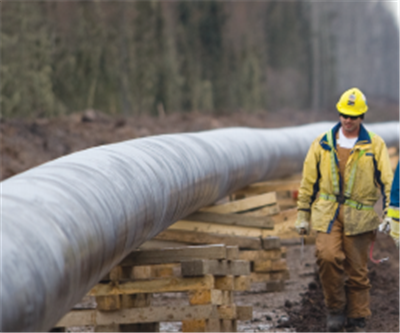Oil sands trade unions’ unique wage agreement

Forget inflation. Building trade unions and construction employers in Alberta’s oil sands region are tying wage increases to the oil price, the Financial Post reports.
With volatile commodity prices and labour contracts that are often negotiated well into the future, oil sands producers and major building trade unions realize that their fortunes are tied to one another. Under current labour agreements, which cover 2011-2015, wage hikes for construction workers are dependent on oil’s market performance.
Twice a year developers take a six-month oil price average and Alberta CPI to calculate whether or not to increase salaries. The scheme does not allow for wage roll-backs.
With bitumen accounting for a huge part of Alberta’s economic performance, wages will follow crude either way, a lawyer told the Post. Both sides want price stability and this is the best way to achieve it, he said.
The oil-price formula allows workers to benefit from booms and gives companies some relief if times are hard, the president of Construction Labour Relations Alberta told the Post.
Over the past several years Alberta’s oil sands region, particularly Fort McMurray, has been relatively insulated from the economic downturn that wreaked havoc on the rest of the country. The industry boasts the fifth-most generous pay packages in the world with average salaries of about $123,000.
But high wages come at a price: Fort McMurray housing prices are the highest in the province. On the upside, gas is cheap.
See the full Financial Post story here.
{{ commodity.name }}
{{ post.title }}
{{ post.date }}




Comments